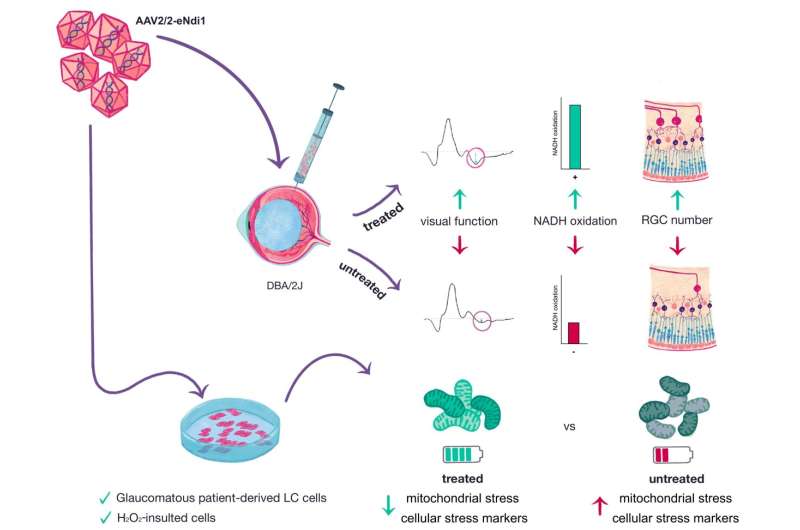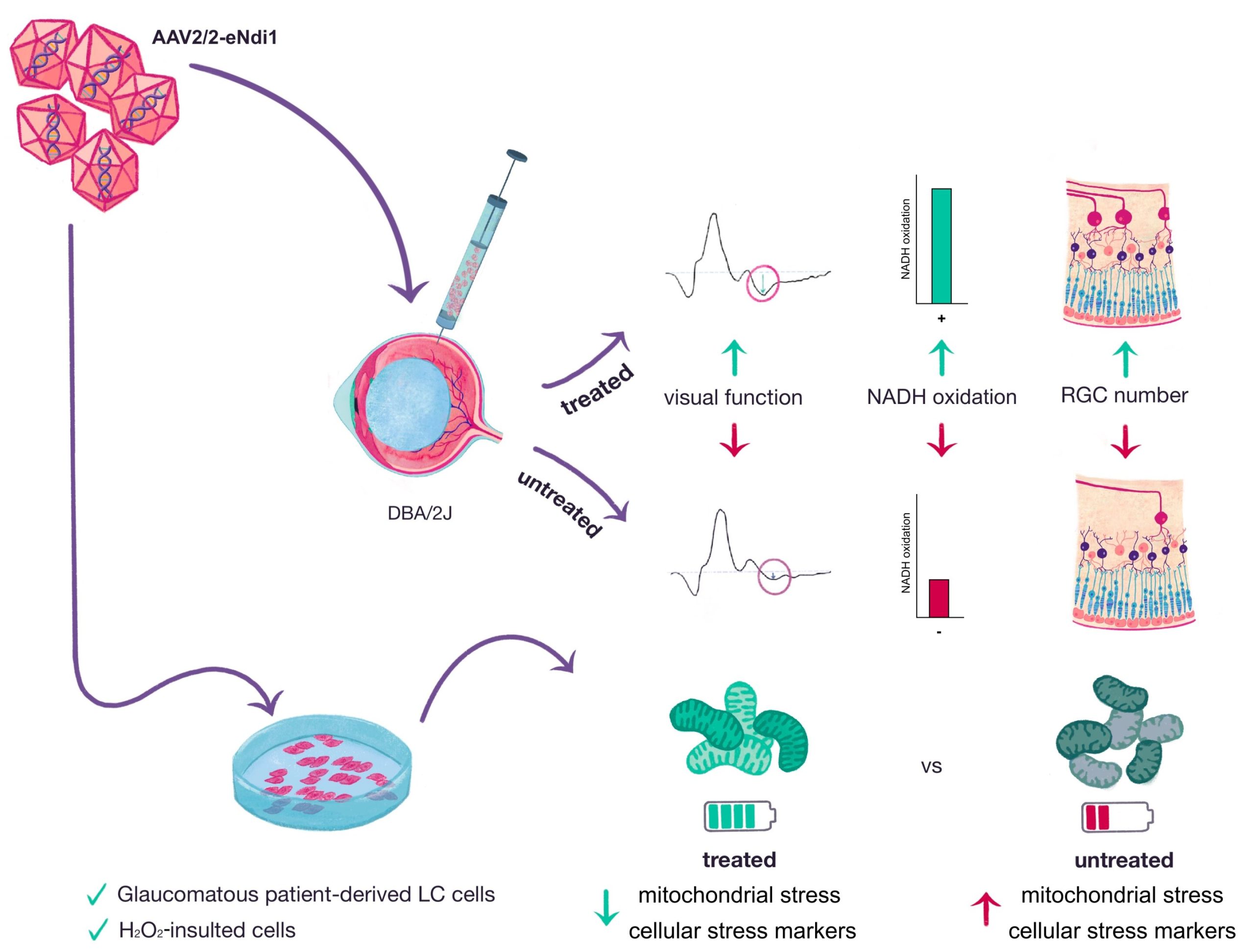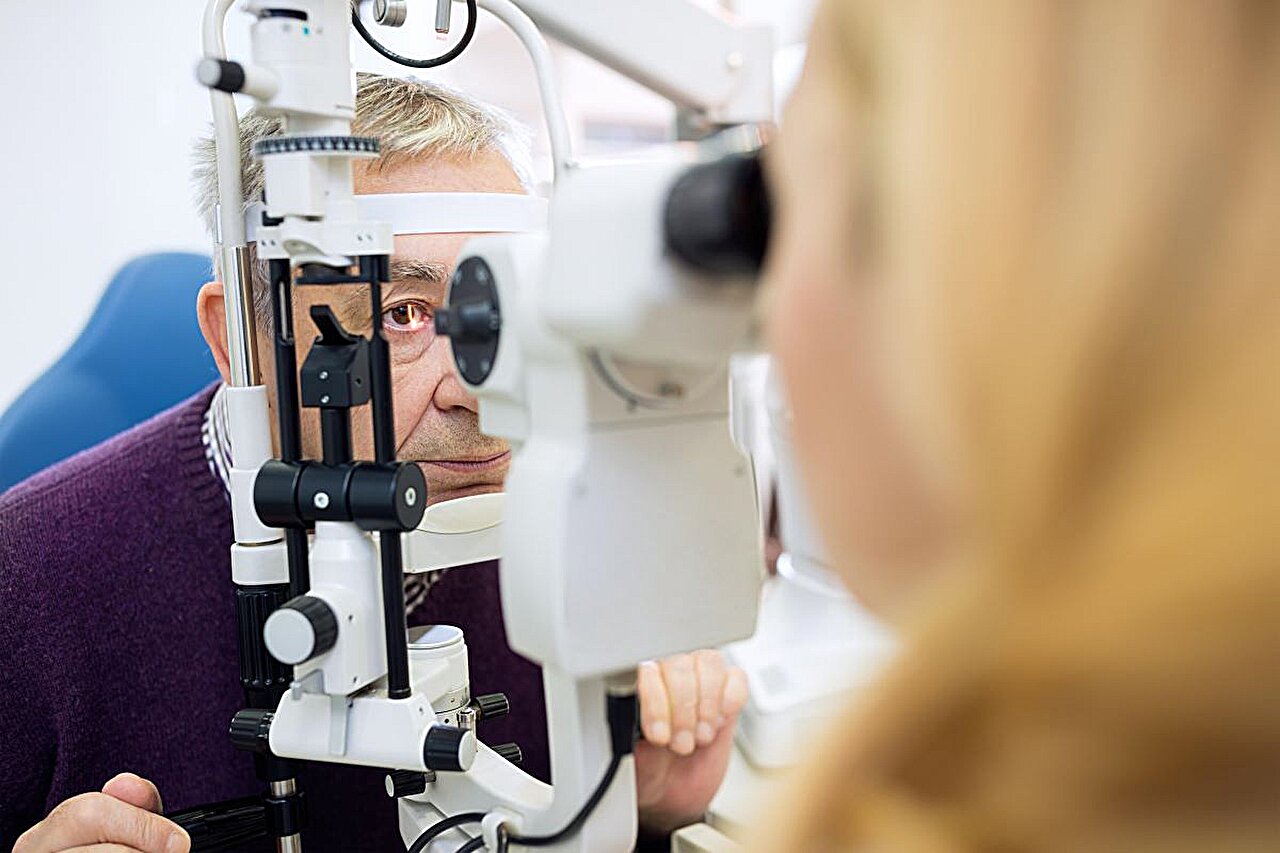
Scientists from Trinity College Dublin have developed a highly promising gene therapy to treat glaucoma, a debilitating eye condition that can lead to complete vision loss, and which affects around 80 million people worldwide. The team had previously shown that their therapy offered promise in treating dry age-related macular degeneration (AMD).
The scientists have published their research in the International Journal of Molecular Genetics. Their work shows how the gene therapy conferred significant benefit in animal models, and in human cells derived from people with glaucoma.
Specifically, the therapy protected key “retinal ganglion cells” (RGCs) that are important in vision and improved their function in an animal model of glaucoma. In human retinal cells, delivery of the gene therapy increased oxygen consumption and ATP (energy) production, indicating enhanced cell performance.
First author of the published research article, Dr. Sophia Millington-Ward, Research Fellow in Trinity’s School of Genetics and Microbiology, said, “Glaucoma is a complex group of optic neuropathies and a leading cause of blindness. In Europe, roughly 1 in 30 people aged between 40 and 80 years have glaucoma, and that rises to 1 in 10 in persons over 90, so this is a really common condition that badly needs new treatment options.”
“It is a multifactorial condition with many different risk factors, which adds to the complexity of treating it. Current glaucoma treatments focus on the use of topical eye drops, surgery, or laser therapy. However, the outcomes are variable, with some patients not responding and/or suffering serious side effects.”
“The need for better treatment options has inspired and motivated us to continue developing gene therapies, and we are delighted with the promise it is showing.”
The new gene therapy uses an approved virus to deliver an enhanced gene (eNdi1) developed by the Trinity team. The therapy was designed with the aim of boosting mitochondrial activity (mitochondria are “cellular energy generators” responsible for ATP production) and reducing damaging reactive oxygen species.
Jane Farrar, Research Professor in Trinity’s School of Genetics and Microbiology at Trinity, is the senior author of the published research article. She added, “Developing broadly applicable gene therapies for large numbers of patients is particularly important, given the high development costs associated with each therapy—and here we have highlighted this therapy has real potential for boosting mitochondrial function in glaucoma.”
Translation of the studies towards the clinic and patients, while involving many additional steps, is the next focus.
Based on these and other foundational achievements, the Trinity team—together with Loretto Callaghan—has recently founded Vzarii Therapeutics to expedite future development of dry AMD and glaucoma gene therapies for human clinical trials.
More information:
Sophia Millington-Ward et al, AAV-NDI1 Therapy Provides Significant Benefit to Murine and Cellular Models of Glaucoma, International Journal of Molecular Sciences (2024). DOI: 10.3390/ijms25168876
Citation:
Gene therapy offers promise for treating glaucoma and age-related macular degeneration (2024, September 9)
retrieved 13 September 2024
from https://medicalxpress.com/news/2024-09-gene-therapy-glaucoma-age-macular.html
This document is subject to copyright. Apart from any fair dealing for the purpose of private study or research, no
part may be reproduced without the written permission. The content is provided for information purposes only.



